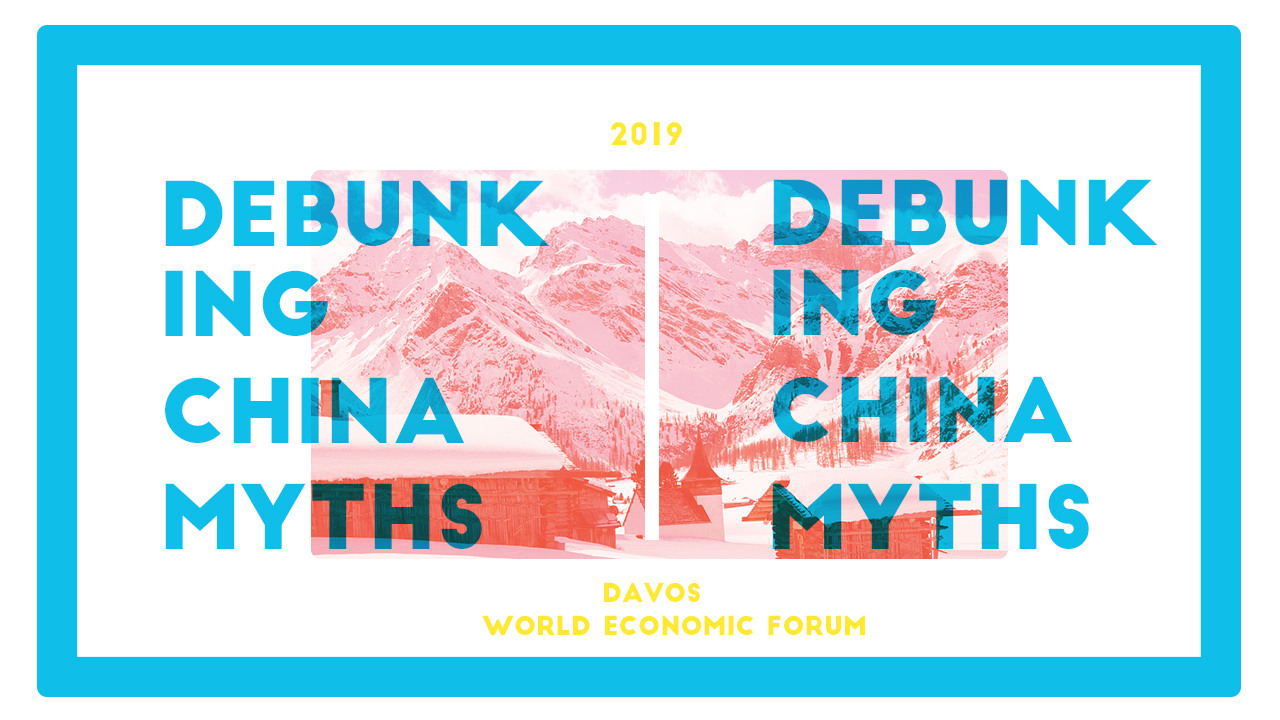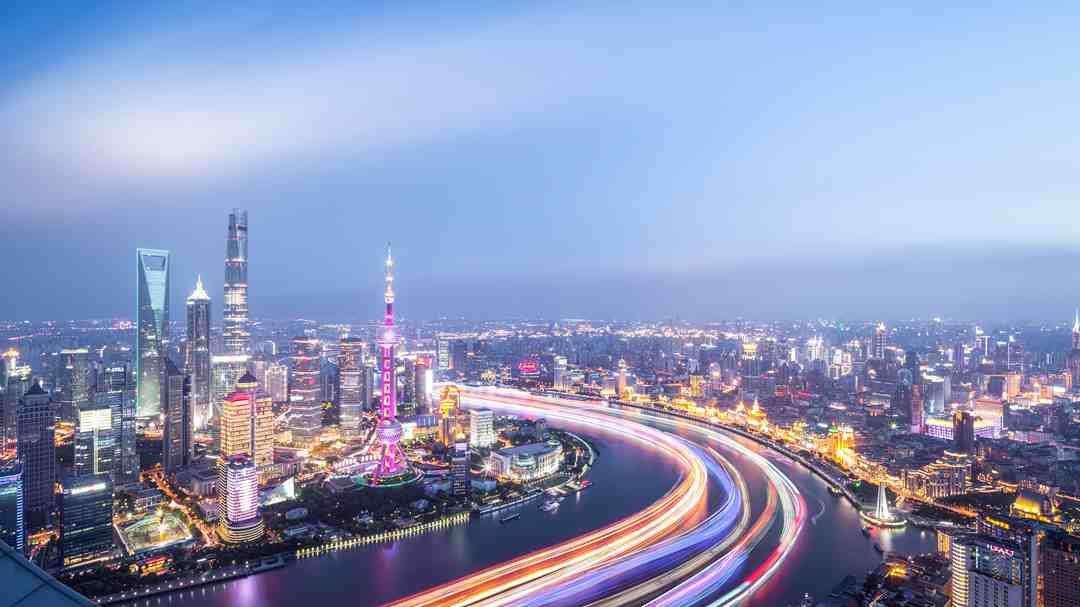
Money Stories
22:28, 29-Jan-2019
Debunking China Myths: How to play in 'Globalization 4.0'?
Updated
22:55, 29-Jan-2019
By CGTN’s Global business
02:53

The sliding global economy has cast a shadow over the world before the Davos forum. One day before the forum opened, the International Monetary Fund (IMF) trimmed its 2019 forecast for global growth in its World Economic Outlook report.
Due to the slow and uneven recovery in the decade since the 2008 global financial crisis, a substantial part of society has become disaffected, not only with politics but also with globalization and the entire economic system.
In this context, the forum set this year's theme as “Globalization 4.0: Shaping a Global Architecture in the Age of the Fourth Industrial Revolution.”
What is Globalization 4.0?
Klaus Schwab, the founder and executive chairman of the World Economic Forum, once said that we are just at the beginning of Globalization 4.0 and are significantly under-prepared for the magnitude of change we are facing.
So, what is “Globalization 4.0”?
Globalization is a phenomenon driven by technology and the movement of ideas, people and goods. And now, the world is entering into the fourth wave of globalization. While all previous waves were about the trade in goods, globalization 4.0 is more about technologies and digital services.
Facing the era with ever-faster data speed and new artificial intelligence, experts pointed out that people often overestimate technologies in the short term but underestimate them in the long term.
“If you are in business, what are the odds that you miss the massive change in technologies? I would say that the odds are very low in the short term, but very high in the long term, meaning more than five years,” said James Early, a current affairs commentator.
He also mentioned that it is hard for people to foresee the future with the fast development of technologies.
“There were 233 car companies in the U.S. back in 1903; now we have four. In 1990, we had almost a thousand e-commerce platforms; now we have three or four… how do you know how to bet properly? It is a lot harder than people think,” he said.
China's role
04:33

This year's forum is not just about recognizing that a new era is coming. It is also about finding a solution that can help reduce the pain on the economy and ensure sustainable economic growth that benefits all.
In his speech at this year's Davos, Chinese Vice President Wang Qishan said that “no matter what uncertainties we face in 2019, there is one certainty – China's development will be sustainable.”
He also said China will defend multilateralism and globalism in the face of increasing unilateralism.
In 2018, the Chinese government shifted to pro-growth policies by expanding fiscal spending and measures to inject more liquidity into the market.
The central bank earlier has cut banks' reserve requirement ratio, resulting in around 800 billion yuan (117.1 billion U.S. dollars) into the financial system.
The country has also been making efforts to encourage domestic companies to step out through the Belt and Road Initiative.
"China's wealth creation over the past 40 years has been the biggest in the history of mankind by far. The next step for China to think about is to go small. China is big, so it tends to do everything big. But once China is stepping out to the world, it needs to pick something small that is basically defensible as a success from every angle. It is the fast way to do that(step out to the world,” said Early.
Rolling out 5G
02:56

Since “Globalization 4.0” is all about hi-tech, is it inevitable to talk about 5G?
During the forum, 5G technology was one of the hottest topics, and it was described as one of the technologies that will either increase inequality or shrink it.
Currently, some countries, including the U.S. and China, have been making efforts in developing 5G for years, while other countries are lagging behind.
"It is very hard to have rapid growth in technology and income without reducing the income inequality gap. The wealthier countries tend to do a better job on smoothing the inequality gap out later. Whether in the U.S. or China, it is inevitable to roll out the (advanced technology) in those prosperous areas first," said Early.
“So, it's going to benefit the wealthier people first, and it is OK because there will be a rising tide lifting our boats over time,” he added.
In this competitive domain, China has been trying to take a leading role.
During the World Economic Forum in Davos, Chinese telecom giant Huawei said that it will release a 5G smartphone in June this year and the company's rotating chairman Hu Houkun also noted that the company has deployed 5G networks in 10 countries, with 20 more to come.
“Based on the current technical development and manufacturing capacity, we will be the first to see the first 5G phone and trial network by the end of this year," he said.
"For the start of 5G's commercialization, we may have to wait until 2020. And for its large scale commercialization, it will take another three to five years until at least 50 percent of the current 4G would upgrade themselves to 5G. This time, China will be one of the leading countries to start using 5G,” said Wang Jianhui, general manager of the R&D department at Capital Securities.

SITEMAP
Copyright © 2018 CGTN. Beijing ICP prepared NO.16065310-3
Copyright © 2018 CGTN. Beijing ICP prepared NO.16065310-3